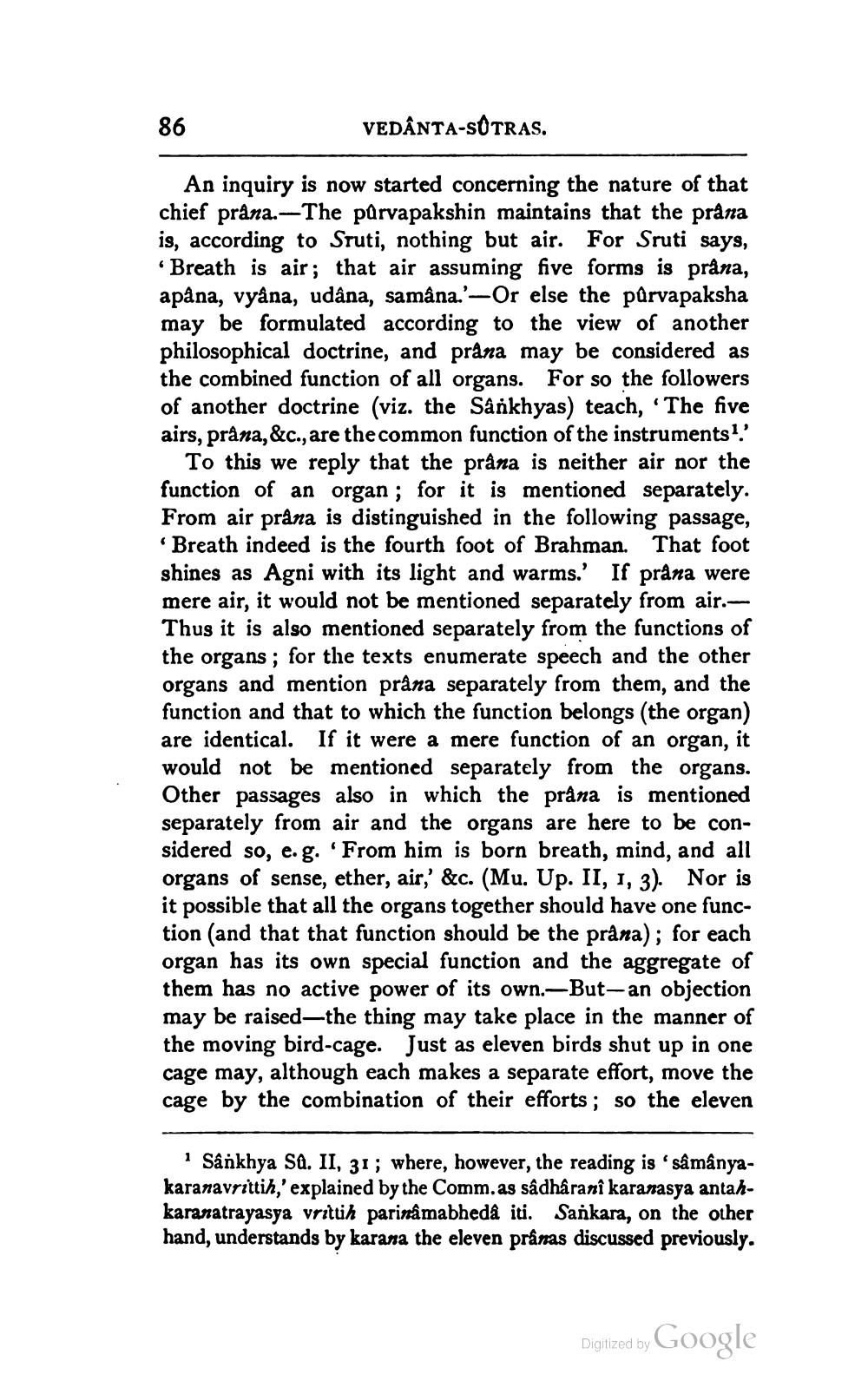________________
86
VEDÂNTA-SOTRAS.
An inquiry is now started concerning the nature of that chief prâna.—The pūrvapakshin maintains that the prâna is, according to Sruti, nothing but air. For Sruti says, • Breath is air; that air assuming five forms is prana, apana, vyâna, udana, samâna.'-Or else the pūrvapaksha may be formulated according to the view of another philosophical doctrine, and präna may be considered as the combined function of all organs. For so the followers of another doctrine (viz. the Sårkhyas) teach, 'The five airs, prâna, &c., are the common function of the instruments'
To this we reply that the prâna is neither air nor the function of an organ; for it is mentioned separately. From air präna is distinguished in the following passage, *Breath indeed is the fourth foot of Brahman. That foot shines as Agni with its light and warms.' If prâna were mere air, it would not be mentioned separately from air.Thus it is also mentioned separately from the functions of the organs; for the texts enumerate speech and the other organs and mention prâna separately from them, and the function and that to which the function belongs (the organ) are identical. If it were a mere function of an organ, it would not be mentioned separately from the organs. Other passages also in which the prâna is mentioned separately from air and the organs are here to be considered so, e.g. From him is born breath, mind, and all organs of sense, ether, air,' &c. (Mu. Up. II, 1, 3). Nor is it possible that all the organs together should have one function (and that that function should be the prana); for each organ has its own special function and the aggregate of them has no active power of its own.-But-an objection may be raised—the thing may take place in the manner of the moving bird-cage. Just as eleven birds shut up in one cage may, although each makes a separate effort, move the cage by the combination of their efforts; so the eleven
Sânkhya SQ. II, 31; where, however, the reading is sâmânyakaranavrittih,' explained by the Comm. as sadharani karanasya antahkaranatrayasya vrituih parinâmabhedå iti. Sankara, on the other hand, understands by karana the eleven prânas discussed previously.
Digitized by
Digilzed by Google




